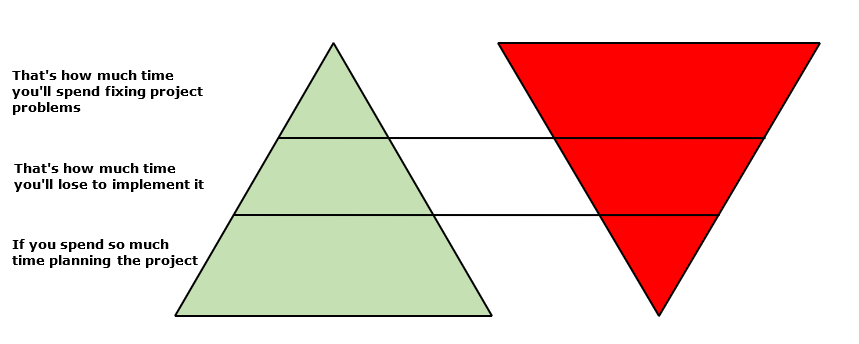Author: Florian Wierzchowski
As you can see, I’m not posing the question at all – whether you should plan in business, because of course you should, and to the best of your ability. Here I want to give you reasons why it is worth it. Although it is possible to act and achieve goals without planning, it will be a short business or full of surprises and crises.
As in the life of any person, even those not involved in business, planning is the order of the day. Planning is the domain not only of business, but of everyday life as well, in almost every aspect of it. We all plan something. It’s almost like the statement of Molière’s Mr. Jourdain, who spoke in prose for forty years without knowing anything about it. Only some do it better, more consciously, others a little worse (same with speaking in prose, sic!). And whether they are everyday goals, like getting public transportation to another location, or outstanding goals, like getting to Mars. These are goals, and actions lead to them – preferably when they are planned.
Someone who decided to reach the moon not only could not plan nothing, but had to plan really a lot. Even if the plan turned out to be imperfect and he sometimes had to improvise or change plans later, he still needed to plan what he would need to do along the way to his goal. Likewise, a person with a simpler goal – to build a house. If he wants to build it, he needs to act according to a plan. Now imagine that such a person is without a plan and builds a house on the proverbial spur of the moment (because what, me and my brother-in-law can’t do it?). They build a house without any plan and start with the roof, then buy windows, then pour the footing, and maybe even tempted to do the ceilings? Such house construction without a plan would be breakneck and full of troubles. The investor would not be happy.
And here are the advantages of planning in a few points:
- planning promotes organizing things,
- plans can be modified in the course (yes, yes!), and sometimes even need to be,
- planning helps you focus on the path you have set,
- planning helps to make sure that all activities are included,
- planning counteracts wishful thinking, makes all intentions realistic and brings us down to earth,
- planning motivates us to achieve our goals, as it is a kind of commitment to take certain actions, not just a document,
- and last but not least – planning forces future orientation, because in business the future is important (only prosecutors, accountants and historians are interested in the past, but even they need to plan their work).
The worst thing that can happen in business is to underestimate planning as a stage that ensures the success or failure of any project. It is recognized that the principle of the so-called two triangles is always true in projects, which I love to introduce to others because it is so very true, and which I briefly introduce to you in the Figure below.

Figure 1: The principle of two triangles
Source: M. Kasperek: Zarządzanie projektem, Kolegium Zarządzania Akademii Ekonomicznej, Katowice 2004, s. 94
Brilliant, right? I added the colors myself, symbolically – green – go, red – stop! The principle of two inverted triangles works! Every time! How many times, unfortunately, have I seen the realization of goals made in accordance with the red triangle, so many times have I seen the very unpleasant consequences of this – often not realizing the set goals at all. At best, it was possible to achieve them late, under stress and nerves, on top of going over budget.
Ignoring planning is an excellent recipe for failure.

